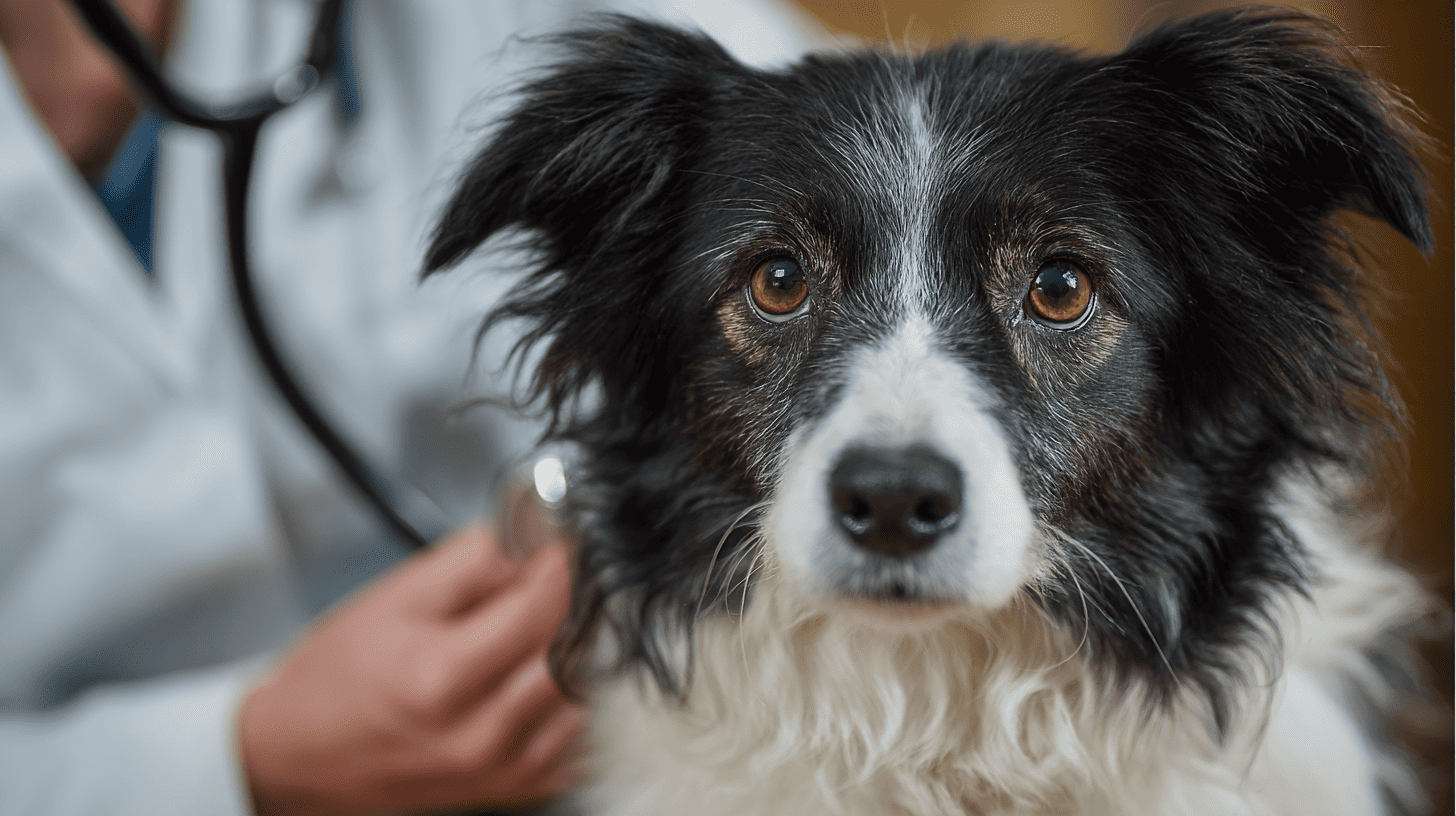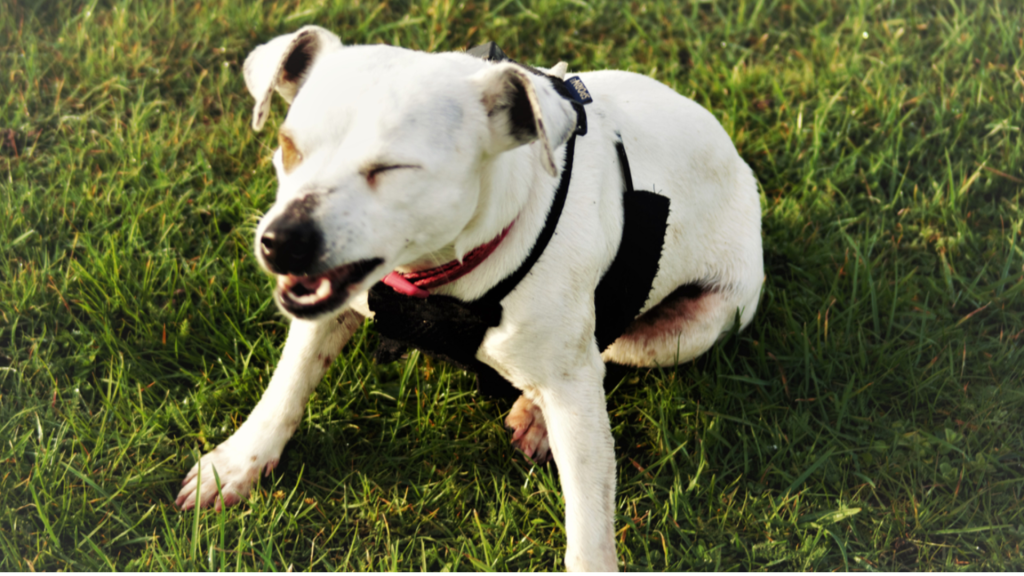Hearing dogs coughing can make any pet owner worry. Sometimes, it’s just a small throat tickle, but other times it might be a sign of a bigger health problem.
Many owners ask, “Why is my dog coughing?” The truth is, it can happen for many reasons, some mild, like dust or allergies, and others that need a vet’s attention right away.
This guide explains the most common causes of coughing in dogs, how to spot warning signs, and when to get help. By the end, you’ll know how to handle dogs coughing with confidence and keep your furry friend breathing easy.
Various Types of Coughs in Dogs
Understanding the type of cough is an important step in figuring out why is my dog coughing. The sound, frequency, and whether it produces fluid can help narrow down the cause of coughing in dogs and guide your next steps.
| Cough Type | Description | Possible Causes |
|---|---|---|
| Wet Cough | Brings up fluid such as mucus; may sound moist or bubbly | Pneumonia, severe respiratory infections |
| Dry Cough | No phlegm produced; sounds harsh or raspy | Throat irritation, kennel cough, tracheal collapse |
| Occasional Cough | Happens rarely, often short-lived | Dust, mild throat tickle, drinking water too quickly |
| Persistent Cough | Lasts more than a week, disrupts sleep or daily activity | Heart disease, chronic respiratory infection |
| Honking / Goose-Like Sound | Loud, harsh, goose-honk style cough | Kennel cough, tracheal collapse |
| Hacking / Gagging | Sounds like trying to clear the throat | Throat irritation, lodged foreign object |
| Deep, Chesty Cough | Low-pitched, rumbling from the chest | Pneumonia, bronchitis |
By learning to identify different cough patterns, you can share more accurate details with your vet, helping them diagnose the problem faster and start the right treatment.
Causes of Dog Coughing: From Minor to Serious

Dogs coughing can stem from something as simple as dust irritation to more serious conditions like heart disease or pneumonia
1. Minor Respiratory Irritants
Minor respiratory irritants like dust, pollen, smoke, cleaning fumes, or sudden temperature changes can trigger temporary coughing in dogs.
Even healthy dogs may cough briefly after exercise, particularly in cold weather. These episodes are usually short-lived, but monitoring ensures they don’t signal an underlying health concern.
2. Kennel Cough (Infectious Tracheobronchitis)
Kennel cough, or infectious tracheobronchitis, is a contagious respiratory illness common in places where dogs gather, like kennels or parks. It causes a harsh, honking cough and may also bring mild lethargy or nasal discharge.
Most cases improve within a few weeks with rest, hydration, and supportive veterinary care.
3. Reverse Sneezing vs. Coughing
Reverse sneezing is a reflex that sounds like rapid snorting and is usually triggered by irritation in the nose or throat.
It’s harmless in most cases but can be mistaken for coughing, especially in small or flat-faced breeds. Episodes are brief and often resolve without treatment.
4. Heart Disease and Congestive Heart Failure
Heart disease and congestive heart failure occur when the heart cannot pump blood effectively, causing fluid buildup in the lungs and resulting in a soft, ongoing cough.
Other symptoms may include reduced energy, labored breathing, and, in severe cases, episodes of fainting. Early detection and treatment are crucial for management.
5. Pneumonia and Lower Respiratory Infections
Pneumonia and other lower respiratory infections, caused by bacteria, viruses, or fungi, can lead to coughing accompanied by fever, fatigue, and reduced appetite.
These conditions require prompt veterinary attention to prevent complications and ensure proper recovery. Early diagnosis and targeted treatment seriously improve outcomes for affected dogs.
6. Tracheal Collapse
Tracheal collapse is a chronic condition, often seen in small breeds, where the windpipe narrows or collapses, resulting in a distinctive honking cough.
While it is progressive, proper management through medication, weight control, and lifestyle adjustments can help improve comfort and maintain quality of life for affected dogs.
7. Lung Tumors and Cancer
Lung tumors and cancer, whether originating in the lungs or spreading from other areas, can lead to persistent coughing.
When accompanied by symptoms like weight loss, lethargy, or reduced activity levels, these signs call for prompt veterinary evaluation and diagnostic testing to determine the cause and look at the treatment options.
Emergency Warning Signs and When to Seek Immediate Care
Some dogs coughing cases require fast action. Get urgent veterinary help if you notice:
- Labored or open-mouth breathing while resting
- Blue or pale gum color
- Coughing up blood or pink-tinged foam
- Frequent, continuous coughing that prevents eating or sleeping
- Collapse or fainting during a coughing episode
- High fever combined with lethargy and refusal to eat or drink
If your dog displays one or more of these signs, seek immediate veterinary care to ensure they receive the urgent treatment they may need.
Breed, Age, and Lifestyle Factors Affecting Coughing
A dog’s age, breed, and daily lifestyle can play a big role in dogs coughing. Knowing these factors can help owners spot possible causes and prevent problems.
- Puppies are more likely to catch respiratory infections like kennel cough because their immune systems are still developing.
- Senior dogs are more likely to develop heart disease, have weaker immunity, and experience coughs associated with certain medications.
- Flat-faced breeds (like Bulldogs and Pugs) may have airway issues; small breeds are at risk for tracheal collapse; large breeds are more prone to heart problems.
- Seasonal allergies, poor air quality, secondhand smoke, strong scents, and overexertion can trigger coughing.
By watching for these risks, owners can take steps to protect their dog’s breathing health.
Veterinary Diagnosis and Treatment Options
During the vet visit, they will evaluate the cough’s frequency, duration, and sound while checking the dog’s heart, lungs, and throat.
Sharing details about recent activities, exposure to other dogs, and symptoms is important, and a video of the cough can be helpful.
Common diagnostic tests include X-rays, blood work, echocardiograms, and sometimes bronchoscopy to identify the cause.
| Category | Details |
|---|---|
| Medications | Antibiotics for infections, anti-inflammatories for irritation, cough suppressants when appropriate, and heart medications for cardiac-related coughs. |
| Home Care | Use humidifiers, minimize exposure to irritants, and ensure adequate rest. |
| Chronic Condition Management | Implement long-term medications, make lifestyle adjustments, and schedule regular monitoring for conditions like heart failure or tracheal collapse. |
With the right diagnosis and prompt care, most coughing issues can be managed or resolved, helping dogs breathe easier and stay active
Prevention, Monitoring, and Ongoing Care
Maintaining a dog’s respiratory health involves prevention, monitoring, and prompt intervention. Simple lifestyle adjustments and regular vet visits can significantly reduce coughing episodes.
Prevention Strategies
- Improve air quality and reduce allergens
- Use pet-safe cleaning products
- Keep up with vaccines, especially for kennel cough
- Avoid high-risk situations for respiratory illness exposure
Home Monitoring
- Track changes in cough frequency, type, or severity
- Record symptoms for your vet
- Know when to book routine vs. urgent appointments
- Consider telemedicine for initial assessments
By taking preventive measures, monitoring symptoms, and collaborating closely with your veterinarian, you can help your dog breathe more easily, recover quickly, and stay healthier in the long run.
Wrapping it Up
Dogs coughing isn’t always something to panic about, but knowing the difference between mild and serious causes is important.
Sometimes it’s just a small irritation, but other times it can mean a bigger health problem.
By paying attention to the type of cough, you can act faster if needed. Watch for changes, notice patterns, and talk to your vet when something seems off. Even a short video of the cough can help with diagnosis.
With good observation, quick action, and the right treatment, your dog can stay healthy, active, and breathing comfortably.









